NRL
When I realised I hadn’t coped
Mum taught me an awful lot about life. Even in death, the lessons are ongoing and she is still teaching me.
I’ve learned a lot about myself as a person and a coach since her passing 14 months ago. I’ve had to.
Even though I thought I handled that traumatic period pretty well in my professional capacity as coach of the St George Illawarra Dragons, I’ve come to realise I didn’t.
My end-of-season review of my own performance – done in consultation with honest feedback from those in key positions on our football staff and playing group – highlighted that.
So, I acted on that information and now feel I am a better coach for it.
Mum’s death was complicated. It was a long, drawn-out, emotionally draining affair that was horrible for her and heartbreaking for family and everyone around her.
Mum’s name was Jean. After having open-heart surgery in February, 2016, Mum had a mild stroke mid-2016; recovered well, then had another on January 28, 2017, which affected her on one side of her body; followed by another soon after, which left her immobilised.
She was hospitalised for the last four months of her life, being transferred between hospitals for different treatments and rehab procedures.
Days, weeks and months went by and her condition deteriorated. She was bedridden and needed to be fed by a tube. Then it was palliative care. Mum wasn’t talking with any coherency towards the end, before she finally lost consciousness. She would sometimes be screaming and hallucinating about things that weren’t actually happening.
Mum was a strong and a proud woman, a classy lady. She was always immaculate, priding herself on her appearance and manners, all the while being able to talk football with the best of us.
It’s incredibly sad when you see the person who gave you everything in life so fragile and helpless. The strokes robbed her of her dignity, which she would have hated.
She would tell anyone at her bedside she no longer wanted to be on this earth.
I’d pick up my Dad, Frank, every day or two and take him to the hospital to visit Mum. That was a positive for the two of us, as we got to see each other so often. But it was always hard on the journey home, after seeing what mum was going through.
Many families have experienced something similar, or even worse. The sight of seeing a loved one in distress never leaves you though. You’d prefer a quick death for them to spare them the suffering.
All the family had their time with Mum before she eventually left us on May 28, 2017.
I was relieved in the end. She had been through too much. But, selfishly, it also meant I was never going to be able to talk to her again – the person who had always been there to guide me, to love me and lift me when I needed a boost.
It was only then I realised I was no longer going to have that. It was a huge shock to the system.

WHAT I COULDN’T SEE THEN
I thought at the time I was coping well as coach. Looking back with the benefit of hindsight, I wasn’t.
When things were going well in terms of results, it all seemed fine. We won eight of our first 12 games last season and everything seemed manageable. But then we lost a few and that, combined with the impact of Mum’s death, created a snowball effect.
It’s hard to describe, because I don’t want it to sound like an excuse because it’s not, but I probably didn’t see things clearly enough in and around my leadership. We ended up finishing ninth and missing the finals.
So when I did my review at the end of the season, I needed to honestly and accurately critique my role and leadership style.
I realised I’d tried to become a fixer of everything. I was trying to be a perfectionist in a game where that doesn’t really exist. In doing so, I was taking away the power of those around me. These were people and players I had, for good reason, entrusted to do a job.
In hindsight, I can see I wasn’t thinking straight. The loss of Mum and the ensuing loss of sleep were a bad combination. I thought I had to work, work, work my way through it.
Other people saw me fatigued, but I didn’t take any notice and pushed on.
I didn’t miss a game, a training session, or a day of work, when probably I should’ve taken a bit of time to reboot and recharge. I didn’t come to realise that until I did the end-of-season review.
Mum taught me an awful lot about life. Even in death, the lessons are ongoing and she is still teaching me.
If I had last season over again, I’d do it differently. But you live and learn. The biggest thing for me was not making the same mistakes twice. If you’re willing to learn, failure can be one of the best forms of teaching.
This year, I’ve tried to empower people in positions of responsibility to perform their roles to the fullest. We have focused on being consistent, remaining disciplined and staying true to our vision and purpose. Staff and players alike have done that a lot better, but there’s still a way to go.
And if I need a little extra advice, I’ve always got the old man.
Like Mum, Dad has been a great supporter of mine. They both taught me to be true to my beliefs and to back myself. I still follow those mantras today.
That said, my goal is to get him reading less newspapers and watch less Fox Sports. He’s a former player and coach, and he pores over the newspapers and is glued to the TV every night. If I cop a bit of criticism, he bites down on the mouthguard.
I’ve got to get him to read more books!
He’s going well for his age. I took him to the cemetery a couple of days ago to put fresh flowers on mum’s grave. We had a coffee and a bite to eat. Dad is, and always will be, a very important part of my life.

RETRO ROUND MEMORIES
We’re celebrating the 1990s in Retro Round this week. That was my era as a player. I absolutely loved it.
It’s well documented that I didn’t choose to enter the big-time with the Illawarra Steelers until the ripe old age of 23. I’d had an offer from Balmain and another one from England; and Bob Millward, the boss at the Steelers at the time, had offered me deals two years in a row, both of which I knocked back.
There were a number of reasons. I was playing football locally on the South Coast, which back then was a pretty big competition, I was getting paid well and working at the steelworks. It was a tough job but it was steady and the money was good.
The money in the contracts I was offered didn’t outweigh all of that but, if I’m honest, there was probably a bit of self-doubt as well.
I wondered whether I was good enough to step up to the next level, even though plenty of people around me thought I was. I’m the sort of person who, unless I’m sure I can be very good at something, I would rather not take it on.
I realised I’d tried to become a fixer of everything. I was trying to be a perfectionist in a game where that doesn’t really exist.
The Steelers’ third offer came at a time when I was playing against some really good ex-NSWRL competition players in the local competition and doing well. I started to think I should give it a shot.
My mates were saying, ‘You’ve got to give it a go,’ and then my dad said to me, ‘Look, get in there and we’ll support you the best we can as a family,’ and I suppose the rest is history.
I debuted for the Steelers in 1991 and was playing State of Origin within 18 months. I represented the Blues in six series. We enjoyed great success, mostly playing under Phil Gould’s coaching.
By 1994, I was playing for Australia. I went on the last Kangaroo tour of England and France that year and back to England for the World Cup in 1995.
The Super League war erupted around that time. It probably wasn’t great for the game. But for the players, it was a once-in-a-lifetime opportunity in terms of earning capacity.
I was just back from the Kangaroo tour, so fortunately, my stocks were high. I drove up the mountain from Wollongong to Sydney to commence negotiations with the ARL, only to come back down with a cheque big enough to buy a house that most people spend 20 years paying off.

The Steelers and Dragons merged and I captained St George Illawarra in the 1999 grand final. A great honour, because as a kid, there was only one team and that was the mighty Dragons – instilled in me from Mum and Dad at a very young age.
If I had my time again, I would’ve made the jump to the Steelers two or three years earlier. I would’ve been better prepared for the physical side of rugby league.
I never did weights until I was 22. I was just a footy player. I ended up having 14 operations throughout my career, so I believe if I’d gone in earlier, I might have adjusted better to the physical rigours instead of going in raw-boned and just playing on talent.
But, hey, overall I had some great times. It was crazy good, really.
I met so many people in the game who became great friends. People who are godparents to my kids and vice-versa. People we still go away with as families.
I see guys I played with and against now commentating for the Nine and Fox networks. It’s great to catch up with them at games.
That’s the beautiful part of rugby league – the lifelong friendships you build.

GAME DAY
The game against the Roosters this Sunday is another step in the journey of our 2018 season. A lot of judges rate the Roosters as the best team in the competition at the moment. It’s a good opportunity for us to show our character and maintain our standards against quality opposition.
They’re starting to reach the expectations that saw them firm as pre-season favourites. A game like this will give the Dragons a good understanding of where we are at.
We seem to have hit a couple of sides when they’ve been at their peak. Penrith and Souths, we lost both those games, and now we’ve got the Roosters. This is a chance for us to do better.
There’s only been one time when we’ve lost two games on the bounce this season. We’re the only team that’s gone coast-to-coast in the top four, from round one to now. The aim is to stay there and be consistent going into the finals, when a new comp starts.
Then the rest will be up to us.
More about: International rugby league | Kangaroos | Leadership | NSW Blues | Penrith Panthers | South Sydney Rabbitohs | St George Illawarra Dragons | State of Origin | Sydney Roosters | Wests Tigers
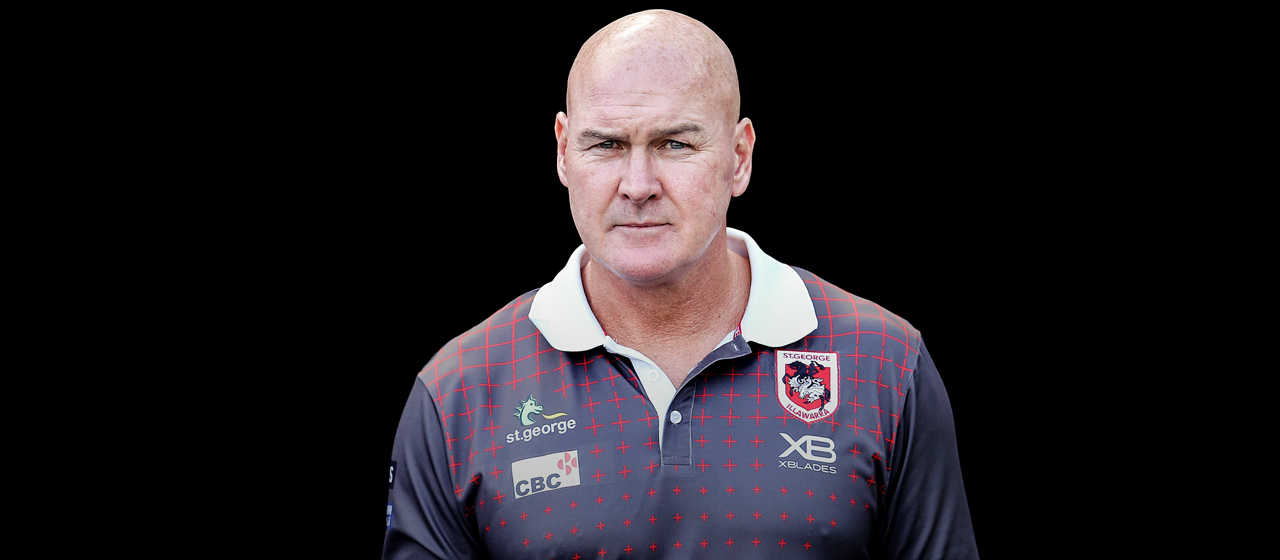
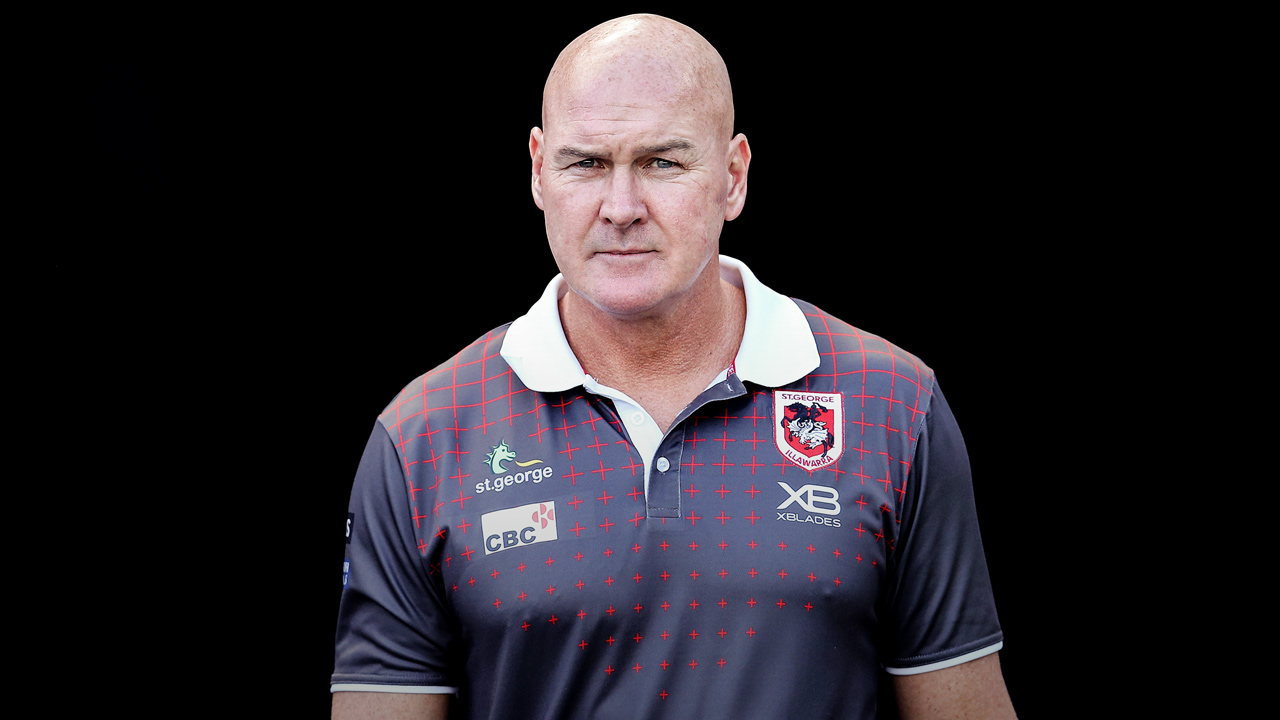

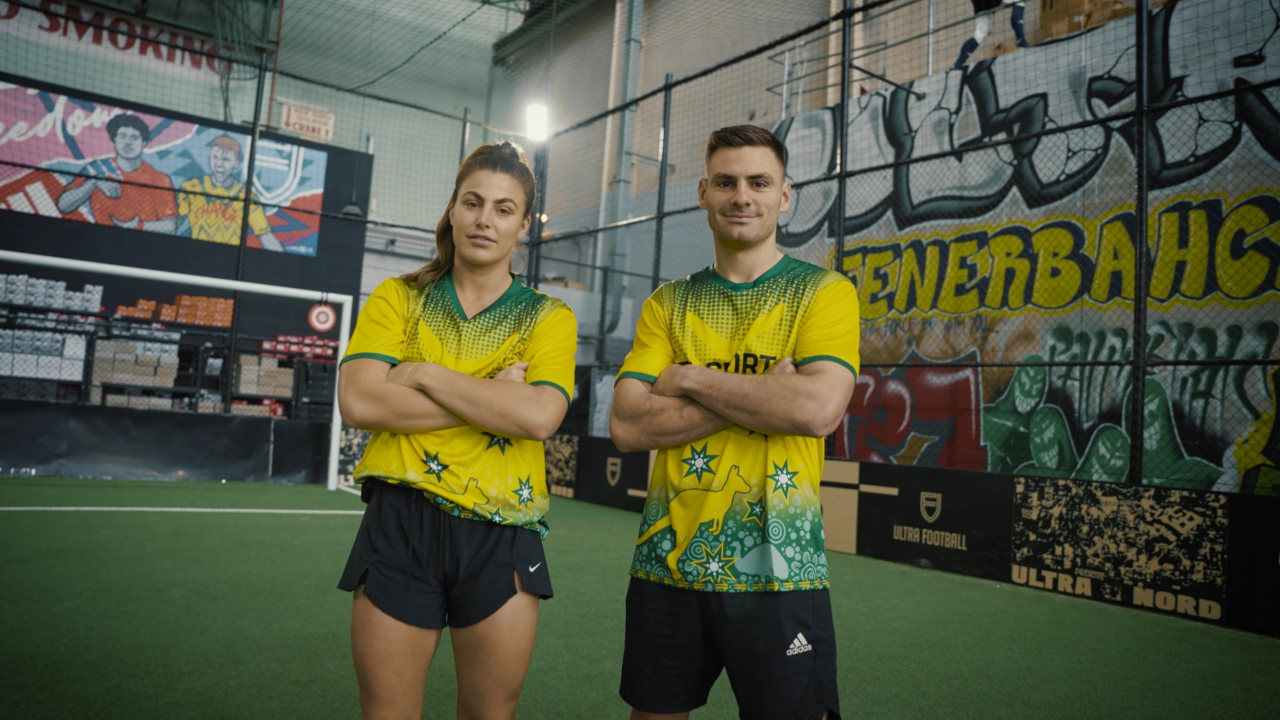
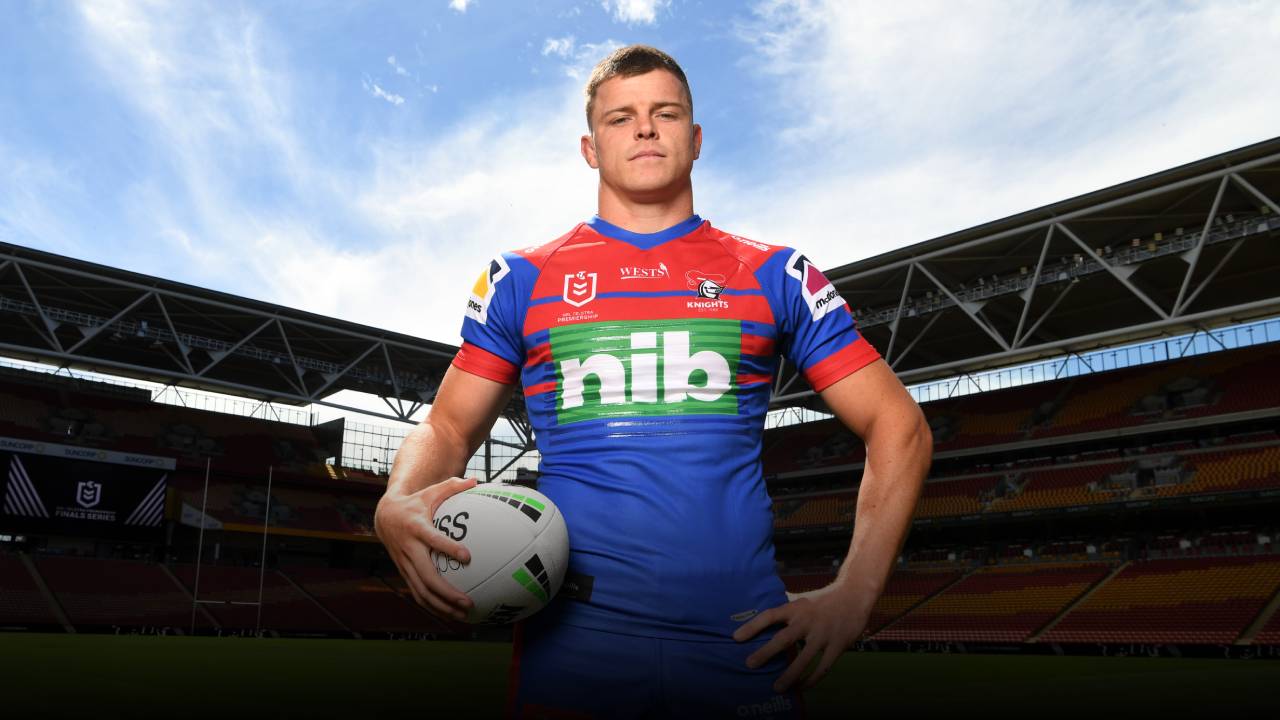
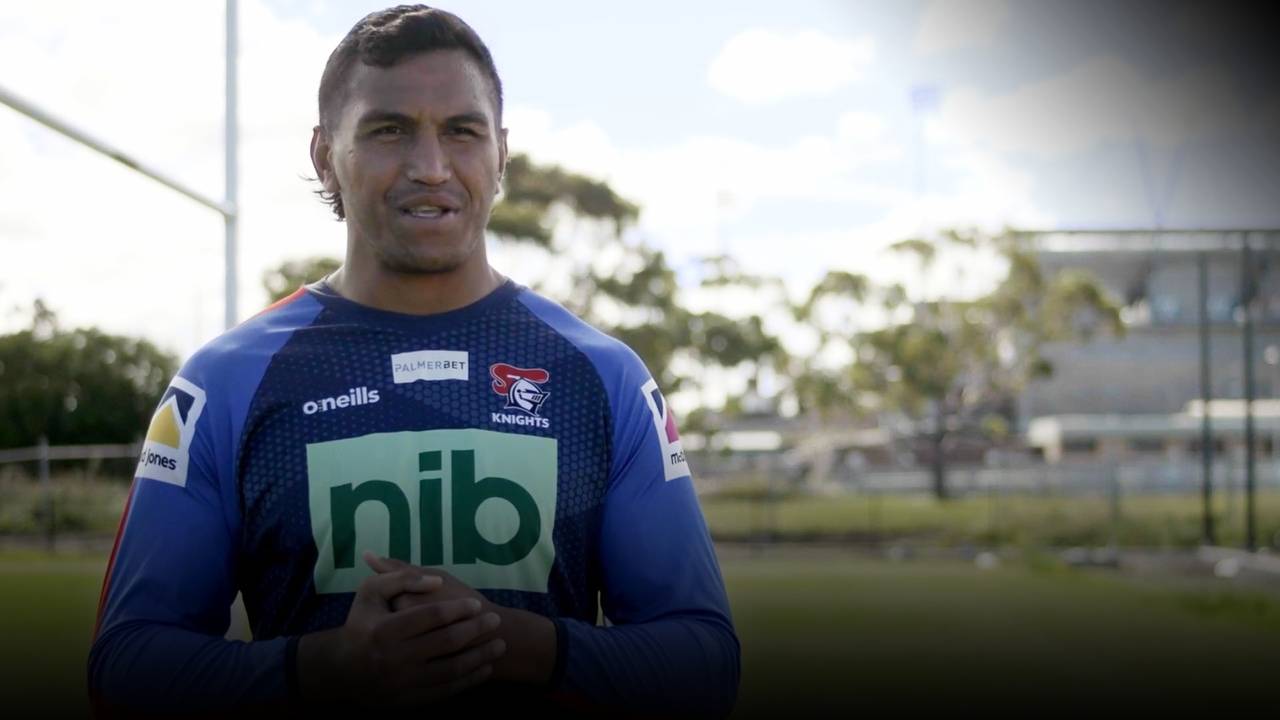
 Load More
Load More